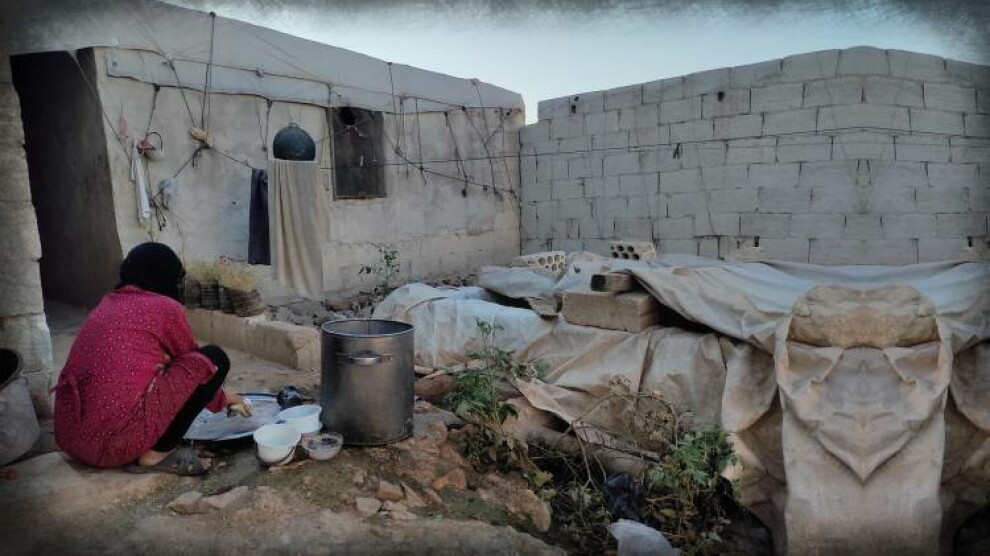Women try to hold on to life in camps of Idlib
People living in the refugee camps of Idlib are struggling for their lives due to bad conditions. Women, who have faced many dangers, are waiting to be visible.

SOHÊR EL-ÎDLIBÎ
Idlib – Ongoing war in Syria causes security problems for citizens. Displaced women try to hold on to life in the refugee camps of Idlib. Bad living conditions, lack of collective shelters and social spaces, and economic challenges pave the way for child labor and child marriage. Insufficient health and education services, shortage of water and food in the camps also make the lives of people worse.
Her child becomes paralyzed
35-year-old Rewan El-Omar settled in one of the camps located near Atme town, located north of Idlib and just east of the border with Turkey three years ago. Her husband is a diabetic patient so she has to look after her four children. “But I couldn’t find a job. We need jobs to make a livelihood. We need security, peace, and health services in the camp,” she told us.
Her five-month-old child got sick a night but she couldn’t take her baby to a hospital because the closest hospital to the camp is situated in the city center. “My child becomes paralyzed because I couldn’t take her to the hospital.”
“Women should be empowered”
27-year-old Ruba El-Husen gave birth to her first child at the camp. “There is no health service in the camp and the hospital is far from the camp so women have to give birth at the camp,” Ruba El-Husen told us. Ruba criticizes NGOs for not carrying out any work to empower women in the camp, “We need courses and activities to be empowered. There are courses and activities in some camps but we are deprived of them.”
Social Service and humanitarian worker Nadia Zeidan (31) highlighted that NGOs should work to empower women living in the refugee camps. “Thousands of women are looking for jobs in the camps. There are few job opportunities in the region so NGOs should develop projects to provide job opportunities to women.”
